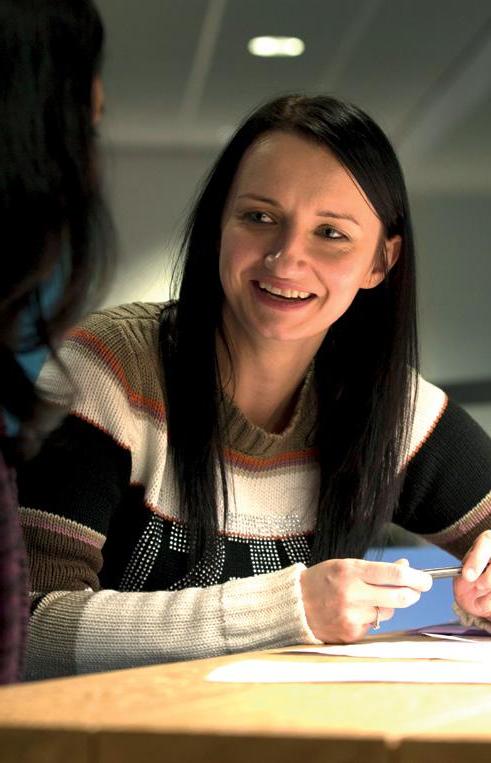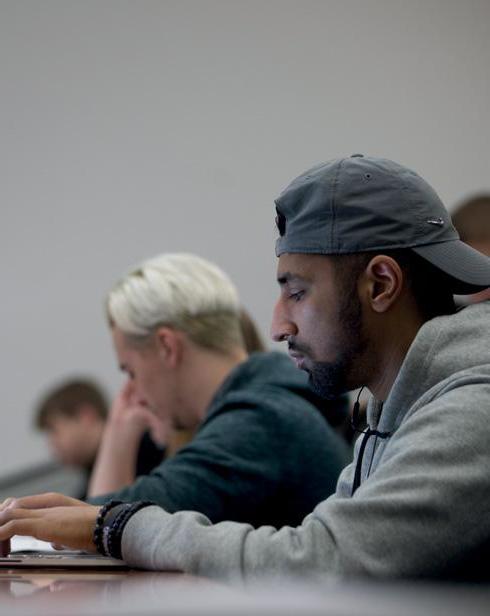
3 minute read
LEARNING AND TEACHING: HOW IT ALL WORKS
Modules are blocks of teaching and learning around a particular theme. Although modules focus on specific topics, the knowledge and experiences you gain in one module will be applicable to all other modules you are studying.
THERE ARE DIFFERENT TYPES OF MODULES:
Core
Compulsory modules. You must study and pass these modules in order to complete your course.
Option
Pre-requisite
Co-requisite
Prohibited
Related to your course. These modules provide you with a choice of topics that you may wish to study.
Modules that have to be passed in order to study another module – for example, a specific module at one level in order to choose an option module at another level.
Modules that must be studied either at the same time (usually the same semester) or in the same academic year as another module and at the same level.
Modules that may not be studied in combination with other modules as denoted in the Course Guide.
Module learning outcomes show you what you will be able to do when you successfully pass a module. Each module will contain one or more assessment activities, designed to ensure that you have an opportunity to demonstrate that you have met the learning outcomes for that module. The assessment brief (see the section on ‘Assessment’) will indicate which learning outcomes are being addressed.

From your school or college experiences, you may be used to working in small groups and being closely monitored by your tutors; however, this is less common in higher education, particularly on courses with large numbers of students.
You will be expected to do additional studies in order to enhance your prospects of getting higher marks and grades. Another difference of higher education is that attendance at timetabled sessions will not guarantee a high result in your assessment tasks. You will be expected to do additional studies in order to enhance your prospects of getting higher marks and grades. The aim of timetabled sessions is to introduce you to new ideas and concepts, which you can study further in your own time – known as ‘independent learning’.
Additional resources will be highlighted as part of your module that will help you to find additional information for your independent learning but you will need to use, and develop, your organisational skills to engage fully with your course.
Different modules will use a range of approaches to engage you with your studies. These approaches may include some of the following:
Lectures
Seminars
Tutorials
Practical sessions
Group work
Case studies
Work placements
Lectures are often used to provide an introduction to a topic, and to help you to structure your independent study. Lectures can involve large numbers of students (sometimes over 200) and there are often fewer opportunities to participate.
Group sizes in seminars are usually smaller than those in a lecture, which provides an opportunity to talk about a specific topic in more depth. Seminars are generally more interactive than lectures, and will give you an opportunity to present your views and ideas and hear what other students think about a topic.
Tutorials involve smaller groups than seminars, and can sometimes include a one-to-one meeting with a member of staff. Tutorials are opportunities to discuss your understanding of a topic or a piece of work (eg. an assessment task).
Depending on your course, practical sessions may include work in different environments, such as: laboratories; studios; fieldwork; sports facilities; health facilities, etc. Practical sessions give you an opportunity to practise the application of your knowledge and skills.
There are times when you will need to work with other students, possibly towards the completion of an assessment task. Group work allows you to gain skills in communication, team work and organisation.
Case studies are a way of applying your knowledge to a specific situation, often based on a real-life scenario.
Work placements provide an opportunity to gain experience in a working environment, varying in length from a few weeks to a full year.








